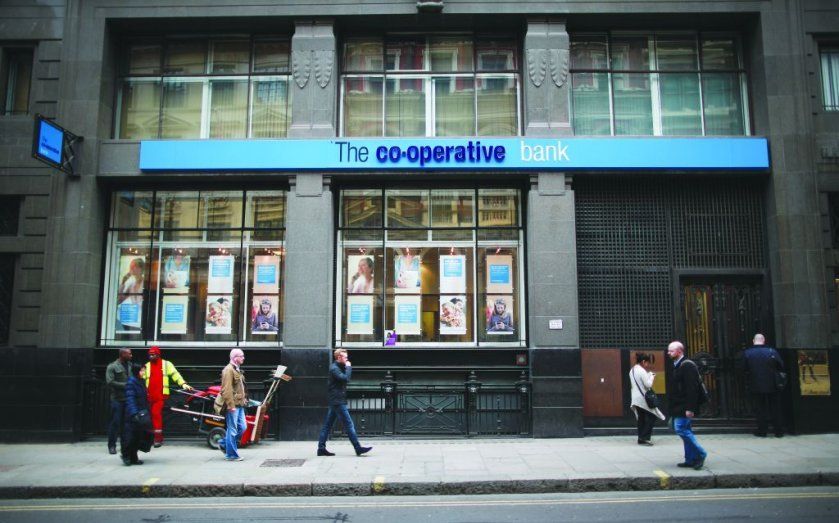The Co-operative Bank swerves £120m fine despite being slammed by Prudential Regulation Authority and Financial Conduct Authority for “serious and wide-ranging failings”

The Co-operative Bank has been slammed by two of the UK's biggest regulators for “serious and wide-ranging failings” over its control and risk management between 2009 and 2013 – but has managed to swerve being fined.
The Bank of England's Prudential Regulation Authority (PRA) and the Financial Conduct Authority (FCA) found that the Co-op Bank had “a culture which encouraged prioritising the short-term financial position of the firm at the cost of taking prudent and sustainable actions for the longer-term”.
The Co-op Bank's control framework was “flawed both in design and operation”. There were also “inadequacies” in its risk management, which meant the business did not fully consider the level of risk it assumed “and therefore did not have the capability to manage that risk”.
“This in turn had the potential to weaken the firm and reduce its resilience,” the PRA said this morning.
These failings meant that the bank's board did not know enough about key issues, in turn resulting in a failure to manage the business effectively.
The bank also failed to deal with its regulators “in an open and co-operative manner” over the same time frame.
The Co-op Bank's breaches warrant a “substantial financial penalty”, of around £120m – but the PRA said imposing this fine would actually work against its aim of improving the firm's safety and soundness.
The PRA also acknowledged the personnel and systems changes that have been introduced since 2013, adding that any current weaknesses be addressed “without delay”.
Andrew Bailey, deputy governor of prudential regulation at the Bank of England and chief executive of the PRA, said: “Firms must have in place strong controls and sound risk management as operating without them undermines safety and soundness.
“Co-op Bank’s failings stand out both for the duration and seriousness of the risk management and control deficiencies uncovered. This was compounded by a lack of openness with their regulator. These were serious transgressions. The PRA has not levied a fine in this instance but, if any future enforcement investigation into Co-op Bank found serious and wide-ranging failings, this censure will be a relevant factor in determining the outcome.”
Georgina Philippou, acting director of enforcement and market oversight at the FCA, added: "Firms have a very basic but extremely important responsibility to be transparent with their investors and with us, as their regulator, and Co-op Bank fell short of this. As a result, investors were left unaware of Co-op Bank’s true capital position and we were left in the dark about intended changes to senior personnel at the bank.
“This is a serious matter, but exceptional circumstances mean a public censure is the appropriate and proportionate response. It is vitally important that Co-op Bank’s capital resources are directed towards improving its resilience.”
Investigations into the role of former senior individuals in events at Co-op Bank are continuing.